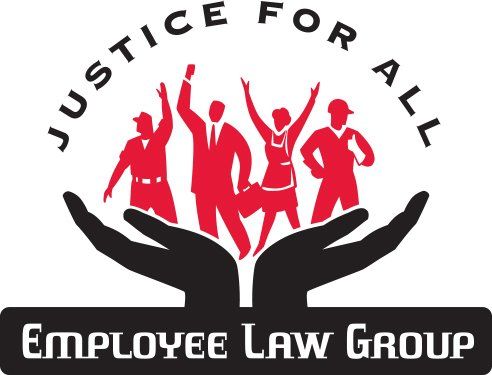- WHO WE HELP
- ABOUT
- GET STARTED
-
CASES WE TAKE
- UNPAID WAGES
- CLASS ACTION SUITS
- FAMILY & MEDICAL LEAVE
- PREGNANCY DISABILITY LEAVE
- HARASSMENT
- NEGOTIATION OF SEVERANCE
- EMPLOYMENT CONTRACT NEGOTIATION
- WORKPLACE CLOSURES
- DEFAMATION OF CHARACTER
- BAD REFERENCES
- EXPENSE REIMBURSEMENT
- ILLEGAL DEDUCTIONS FROM WAGES
- MINIMUM WAGE VIOLATIONS
- UNPAID OVERTIME
- UNPAID COMMISSIONS
- WRONGFUL TERMINATION
- SEXUAL HARASSMENT
- LOS ANGELES EMPLOYMENT LAWYER
- LOS ANGELES DISCRIMINATION LAWYER
- WHISTLEBLOWER RETALIATION
- FAQs
- BLOG
- CONTACT
Unpaid Commissions Uncovered: How to Ensure You Get Paid
Do you believe your current or former employer owes you commission and is refusing to pay it? In many instances, this is a form of wage theft in the eyes of the law in California.
Here’s what you need to know about unpaid commission. Learn how employees are protected by California laws and what you can do if your employer won’t pay up, including working with an employment attorney.
The Definition of Commission
Commission is different from regular wages or a salary. Rather than earning a set amount that’s the same every hour or pay period, you get money by completing a certain task or reaching a specific goal.
Some common commission pay schemes include:
- A percentage of sales revenue
- Increasing sales growth according to a formula
- Bringing on new accounts or clients
- Booking appointments or demos
- Working extra hours during busy periods
- Making a certain number of items or pieces
- Meeting tough deadlines
- Staying with a company for a certain amount of time
- Helping your employer recruit new workers
- Launching a new product or opening a new branch
- Recruiting candidates for open jobs at a third-party business
- Driving a certain number of delivery miles per week or month
Commission can be calculated as a percentage or using an algorithm. It can also be a flat fee, such as earning X number of dollars for working extra shifts over the holiday season. You might get paid by the piece, which is common in some manufacturing and garment jobs.
Usually, commission is earned on top of a base salary. For example, in pharmaceutical and medical device sales, employees get a bimonthly salary. In addition to that, they frequently earn a bonus for increasing sales above the average expectation. The bonus is based on a formula; the more you grow sales, the bigger your bonus. This is also known as incentive compensation because it provides incentive or motivation to keep increasing the company’s income.
There are also jobs that are 100 percent commission-based, with no salary or hourly wage. These are becoming more common because they allow the employer to avoid paying benefits, like health insurance or paid vacation time. However, these jobs also sometimes veer into employee misclassification. Is the worker really an employee, or are they an independent contractor?
Employer Commission Scams and Violations You Should Be Aware Of
Sometimes failure to pay commission on the employer’s part is an oversight or miscalculation. That’s why it’s important to always have an employment agreement or contract that spells out how commission is earned and when it will be paid.
Sadly, many employers intentionally try to cheat workers out of rightfully earned commission. They use the methods below as “justification” for what is actually breaking the law.
Firing you before commission is paid
Some companies run a scam of firing workers before their commission pays out. Here’s how it works. They hire people and convince them to work hard toward a specific goal by promising commission. But when it comes time to pay the commission, the employee has been let go.
The employer might say they’re having financial problems or create a false accusation to fire someone for cause. Or they simply use the old “employment at will” excuse. While it’s true that many positions are indeed at will, the employer still has to pay earned commission, even if the employee has been let go or the company is in financial hot water.
Changing the commission rules after the fact
As mentioned above, it’s wise to have the terms of your commission spelled out in a written agreement before accepting any job or new commission plan at an existing job. Otherwise, it’s easier for an unscrupulous employer to change the rules mid-commission period and claim you’re wrong about what you should earn.
For instance, you might be told you’re going to earn 10 percent of quarterly sales for every new customer you bring into a chain of appliance stores. But when the quarter is through, your employer tells you it was 5 percent instead.
This is one of the most common scams employers use to cheat workers out of commission pay. They might also add stipulations you didn’t previously agree to, like you only earn commission on sales over $500 or only people who have been with the company for a year or more qualify for commission.
Refusing to pay commission to people who leave voluntarily
Another common violation is for a company to refuse to pay commission to an employee who has quit working there after the commission was earned. But if you left voluntarily, you are still owed your commission pay. In fact, depending on the terms of your employment agreement, you might still be owed commission if you are laid off or even fired.
Unpaid Commission Is Often a Form of Wage Theft
Commission isn’t just a nice perk that your employer can decide to pay or not pay. It’s considered to be the same as your salary or wages in many cases. That means if your employer refuses to pay you rightfully earned commission, they are committing wage theft.
And just like with other forms of wage theft, you can file an official claim with the State of California Department of Industrial Relations. They conduct an investigation to follow up. If the employer is found guilty of wage theft, they can be cited and fined, as well as ordered to pay your unpaid commission.
The key to getting your unpaid commission is to have as much documentation as possible, like an employment contract that spells out your commission plan. Also, you should be clear about the following:
- Are you being paid actual commission, or are you paid tips? Sometimes even a bonus may not be the same as commission, although there is some overlap between the two.
- Did you forfeit your right to commission under any circumstances?
- Was your commission plan legal under California law? Were you forced to sign a commission plan you disagreed with (e.g., threatened with losing your job)?
Consult an Employment Attorney for Unpaid Commission
Sometimes the answers to these questions are murky, so it’s smart to talk to an employment lawyer to see where you stand. And, as discussed previously, your unpaid commission case may involve other labor violations, such as:
- 1099 misclassification
- Wrongful termination
- Discrimination
You might also not have been paid other money owed to you, like overtime pay.
An employment attorney, like the team at Employee Law Group, can help with many aspects of these issues. First, they can help you decide whether or not you have a case and have sufficient documentation of unpaid commission or wage theft.
Then, they can advise you on the next steps. You may wish to file an official complaint, so they can assist with paperwork and follow up.
Or, if the official channel takes too long — as is often the case when California has a backlog of claims — they can help you take the employer to court. An employment attorney can represent you in a lawsuit, including helping you prepare for court, so you can continue to work or look for another job.
They can help with things like retaliation, bad references, and blacklisting or even getting your job back if you’ve been wrongfully terminated. Sometimes simply retaining a lawyer who can send a letter to your employer may help get your unpaid commission.
Where to start with all this? Contact Employee Law Group for a free initial consultation. If you have a case, together we can decide where to go next for the best possible outcome. Call us at 310-407-7358, or
use our message form to get in touch online at your earliest convenience.









EMPLOYEE LAW GROUP | JUSTICE FOR ALL
21250 Hawthorne Blvd. Suite 500, Torrance CA, 90503
500 Capitol Mall, Suite 2350, Sacramento, CA, 95814

